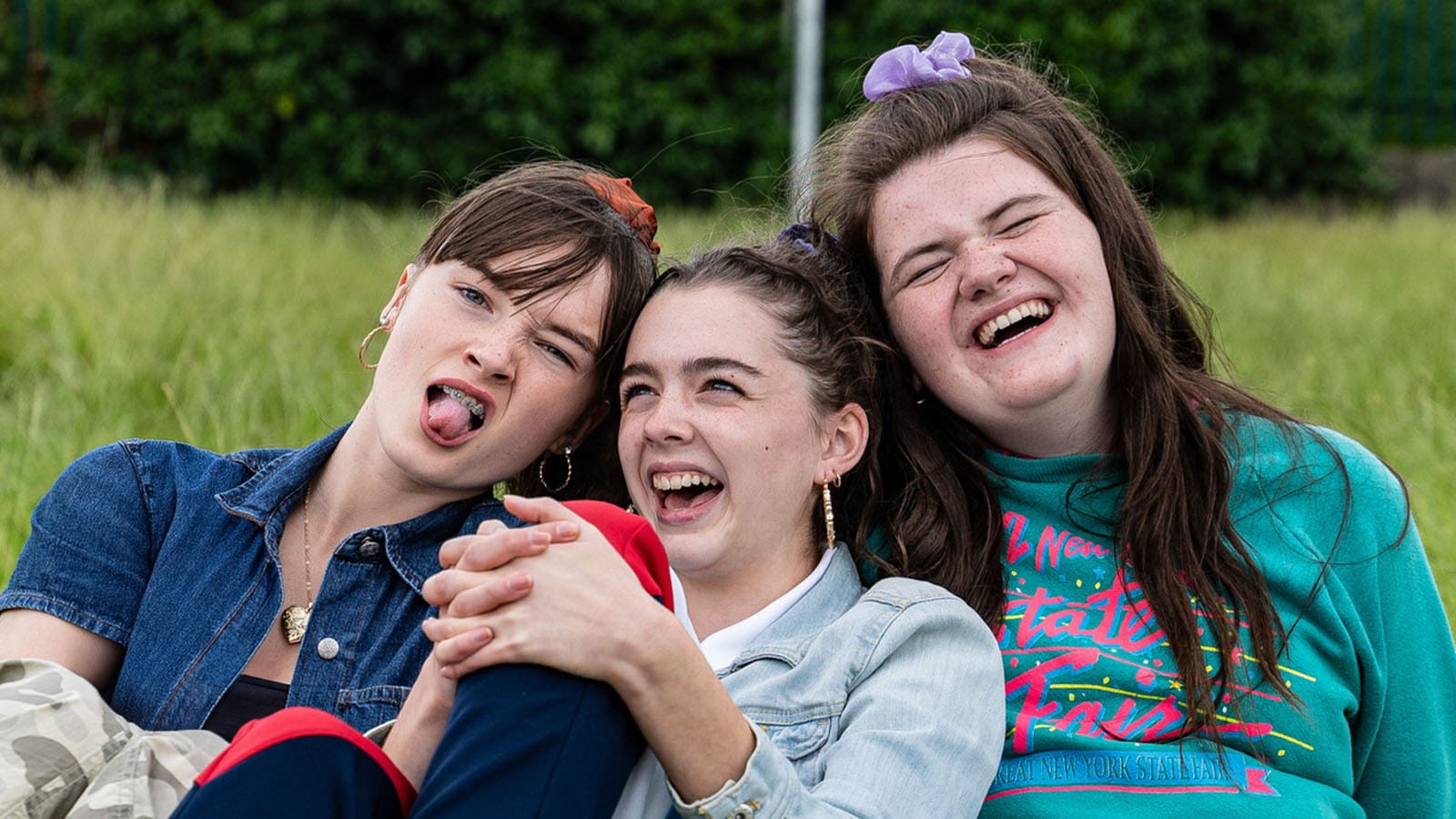
Ready or Not starts as a lighthearted coming-of-age film centering around a young group of friends, but gradually darkens into something far more sinister as the realities of growing up start to sink in. The film follows Katie (Ruby Conway Dunne) and her two friends Danni (Molly Byrne) and Sarah (Alicia Weafer), who are growing up in the “fish bowl” of Dublin in the summer of 1998. The others tease Katie and her lifelong best friend, Steo (Alex Grendon)—who is more of a brother than a friend—not only for not having been kissed yet, but for not having kissed each other. Katie, determined to shed the never-been-kissed label, decides to get it over with, something Steo is all too happy to oblige her in.
This first ‘sexual awakening’ for Katie launches her headfirst into a world of boys she constantly wishes she could run away from. The moment she shows any interest in boys, she’s treated like nothing more than an object.
Katie, Danni, and Sarah navigate hormones, teenage drama, boys, and friendships throughout the summer. Growing up is hard, especially when your friends mature faster than you or when you’re jealous of the same boy (because there are only about five at your school). However, the best part about Ready or Not is the visible chemistry between the three friends; it’s clear that no matter what, they’ll be alright.
Debut director Claire Frances Byrne and screenwriter Lynn Ruane offer a poignant and heartbreaking exploration of adolescence. With Byrne, Ruane, and producer Ruth Coady contributing their experiences, the film’s subject matter is handled delicately and expertly, with a genuine lived-in feel. The story is further strengthened by the immensely talented group of mostly teenage actors. Dunne shines as Katie, captivating the audience with her carefree joy and deeply felt pain.
If you’re a woman who’s been through puberty, you’ll likely find aspects of your experience mirrored in this film, regardless of whether it resembles Danni’s experience or (hopefully) Sarah’s. Many of us have faced unwanted advances, social pressure, and the unfair double standard of being labeled either prude or slut. As Katie puts it, “We all learned the rules that summer and we couldn’t help but notice as girls, those rules weren’t written for us.”
Though Katie and her friends face harsh realities throughout the film, Byrne ultimately offers a message of hope. The girls are irrevocably changed, but they’re closer to each other now because of it. Though much of the film is difficult to watch, its humor and joy are what will stay with you.
Ready or Not triggers nostalgia for teenage freedom while simultaneously reminding you why high school, with its out-of-hand parties, mean girls, and entitled boys, wasn’t actually all that great.

